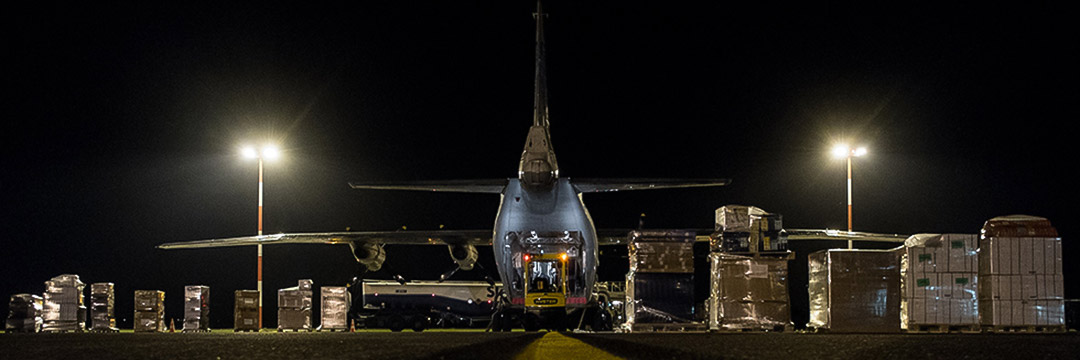Procuring resilience: the lessons COVID-19 recalls
2020.6.2
25 years ago, a generation of MSF leaders had the remarkable foresight to diversify our funding sources. COVID-19 shows how urgent it is for us to reapply this lesson elsewhere.
In the 1990s, a cohort of MSF luminaries made the far-sighted decision to transform MSF’s funding structure. By setting up new offices and engaging supporters and donors all across the globe, MSF ensured that its operations would not be dependent on political and policy changes in any one country. As a result, MSF has been able to decide where it should work much more independently of any country’s agenda, and so focus its assistance on those with greatest medical need even in political hotspots like Afghanistan, Iraq, and Somalia. MSF has also been better able to speak truth to dominant powers – who are often the largest humanitarian donors – most recently with regard to the treatment of asylum seekers in Europe and the US. Now, these lessons have become relevant to other areas of MSF’s work beyond finance.
Several particulars of contemporary globalisation – including trade liberalisation, capital mobility, a profit-driven search for economies of scale, and vastly unequal labour costs – have led previously localised and varied supply chains to become globalised and quite reliant on procuring from single sources. COVID-19 is demonstrating the shortcomings of this system. Here in Japan, car and electronics manufacturing’s high dependence on a small number of Chinese suppliers is now identified as a fundamental vulnerability, prompting discussion of a “shift away from China” policy to diversify supply. Similar debates are happening in Singapore
and South Korea
, the supply chains of which are also dependent on Chinese producers. Belatedly, corporations and governments are noticing the loss of supply network resilience, and subsequent stock ruptures, that came with centralisation and consolidation of suppliers. Humanitarian organisations like MSF exist in the same procurement system. But conversely, due to our own organisational history, MSF supply centres are all located in Europe, and a long list of often critical supplies have regularly been sourced from singular, European suppliers. This too is not a resilient system, and COVID-19 has shown this dramatically. Some years ago, MSF been working to rectify this through our own “shift away from Europe.” Since 2015, the MSF Japan Innovation Unit (JIU) and MSF Logistique – an MSF-run supply centre - dramatically stepped up this search.
While Asia represents 50% of global GDP, only 13% of MSF’s international procurement occurs in the region (predominately generic drugs from India and Toyota land cruisers). Traditionally, MSF has been sceptical about purchasing in this region – other than in Japan – due to concerns over quality. But countries like South Korea and Malaysia now have sophisticated drug and medical device standards and regulatory systems. While standards in China remain less sophisticated, quality and regulatory systems are coming into line with international standards. In 2015 MSF Japan and MSF Logistique launched a project to source drugs and medical devices in Japan. In early 2019 with the support of MSF’s Transformational Investments Capacity, we expanded this into the Asia Procurement Project, that today receives support from the International Office and MSPP.
Shortly after the COVID-19 emergency hit Europe and the US, MSF faced the same challenges as government and other health organizations of sourcing items like Personal Protective Equipment. MSF quickly began looking to China and other parts of Asia for these items, hastily setting up a coordination and procurement system that now receives regular support from the JIU. But it is clear that our knowledge of the regional market is still underdeveloped.
The COVID-19 outbreak serves to underscore the importance of expanding the number and the geography of MSF’s suppliers. In the short-term the JIU is concentrating on sourcing supplies for the enormous movement-wide COVID-19 response. Beyond the pandemic, this Asian procurement project is an opportunity to bring balance to our conventional supply lines and deepen their resilience. This promises to reduce stock ruptures and decrease purchase and transportation costs.
In the 1990s, MSF leaders responded to a changing geo-strategic environment by diversifying funding sources. Now, changes in that environment underscore the need for us to diversify our procurement sources. We shall report our progress in subsequent blogs.
Contact
MSF Japan Innovation Team
MSF Japan Innovation Team is providing innovative ideas of solutions to the MSF activities. If you, either as a company or as a professional, have an idea that would be beneficial to our projects as well as patients, please contact us. Your innovative proposal is always appreciated.
-
E-Mailinnovation@tokyo.msf.org
